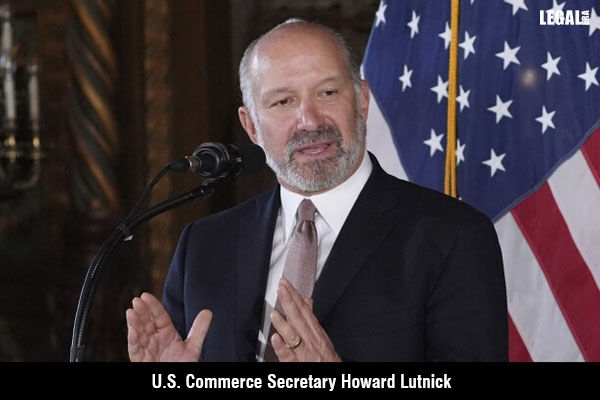
U.S. Commerce Secretary Howard Lutnick warns Harvard of action on patents
President Donald Trump has been targeting the university over allegations, including violating Title VI of the Civil Rights Act
U.S. Secretary of Commerce, Howard Lutnick, has communicated to Harvard University President, Alan Garber, apprising him about the government’s action on its patents.
The Commerce Secretary accused the institution of failing “to live up to its obligations to the American taxpayer and breaching the statutory, regulatory, and contractual requirements tied to Harvard’s federally-funded research programs and intellectual property arising therefrom, including patents.”
He added that as a result, the Commerce Department will “initiate an immediate comprehensive review of the compliance, or lack thereof, of Harvard’s federally funded research programs.”
For decades, the patent community has cautioned the government against marching in on patents under the Bayh-Dole Act, which contemplates march-in rights. The law limits the situations in which such rights can be exercised, and such requests have been rejected on a bipartisan basis many times since the bill became law.
In December 2023, the National Institute of Standards & Technology (NIST) and the Department of Commerce published a draft version of a Federal Register Notice seeking comments on a proposed framework for deciding whether and when to exercise march-in rights under the Bayh-Dole Act. It would have significantly broadened the criteria for compulsory licensing of patented technology developed with federal funding.
In September 2024, the Chamber of Commerce urged the President Joe Biden Administration to change course on the since-failed policy proposal. It argued that it would threaten U.S. dominance in quantum computing.
Joseph Allen, Bayh-Dole Coalition’s Executive Director, who formerly served as the Senate Judiciary Committee staffer to Senator Birch Bayh (D-IN), had explained, “The framework would irreparably undermine one of the most successful laws in American history.”
However, the proposal was neither finalized nor officially rescinded.
Now, Lutnick wrote to Garber that the government would initiate the march-in process by granting third-party licenses to Harvard’s patents or taking title where it found the university failed to comply with the Act.
The Commerce Department will investigate:
- Failure to comply with the requirements for timely disclosure and election of title under 35 U.S.C. § 202(c)(1) and 37 C.F.R § 401.14(d)(1)(i).
- Failure to comply with the preference for the U.S industry as required by 35 U.S.C. 204 and 37 C.F.R 401.14(i).
- Failure to take effective steps to achieve practical application of subject inventions as required by 35 U.S.C. § 203(a)(1) and 37 C.F.R § 401.14(j)(1).
The letter directed Harvard to “provide a comprehensive list of all patents it has received stemming from federally-funded research grants and provide information sufficient to prove its compliance with the Bayh-Dole Act, its associated regulations, and our contractual agreements.”
Lutnick added, “Taxpayers deserve the benefit of the bargain. If Harvard won’t honor the Bayh-Dole Act, then we will find someone who will.”
The government’s move is, undoubtedly, political, as President Donald Trump has been targeting Harvard over various allegations, including violating Title VI of the Civil Rights Act by refusing to address antisemitism on campus. The Administration froze all federal funding to the university in April and Harvard is currently suing President Trump over the funding freeze.
Meanwhile, in response to Lutnick’s letter, the Bayh-Dole Coalition cautioned the Commerce Department to consider the decision of taking action.
The Coalition stated, “The Bayh-Dole Act has improved and saved millions of lives while helping make the U.S. the world’s innovation leader. For over 45 years, it succeeded because it has applied consistently and faithfully, giving the government, universities, and the private sector the confidence to work together to turn federally funded research into real-world solutions. While the government has a duty to ensure compliance, that oversight must be grounded in the law’s requirements and applied evenly to preserve trust in the system.”
While criticizing the plan, the Council for Innovation Promotion mentioned, “We are deeply troubled by the Commerce Department’s letter to Harvard University stating that the it is initiating the ‘march-in’ process under the Bayh-Dole Act to grant licenses or take title to Harvard’s patents. The Bayh-Dole Act exists to move federally-funded discoveries from university labs into the marketplace, most often through startups and other entrepreneurial ventures, where they become new products, create jobs, and strengthen the economy.
It added, “By casting doubt on the security of university patents, even for a single institution, this effort injects uncertainty into the market, discourages investment, and punishes the entrepreneurs who take the risks needed to bring innovations to life.”